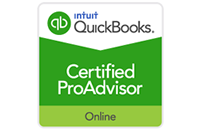As small business owners, it can be a challenge to keep all of your finances separate – after all, when you first start out on your business venture, chances are good that you’ll be infusing the business with money from your personal cash reserves to get things off the ground. So when the business starts turning a profit and the time comes to start taking money back out, it can be tricky to manage the fine line between personal and business finances.
That said, your accountant (and your future self) will thank you for exercising discipline and restraint with regard to your money on both ends of the spectrum – especially when it comes to keeping your records clean and organized.
Why Keep Business & Personal Finances Separate?
Let’s face it – from your first business expense to your first paycheck, money can be something of a grey area when you’re running a business. A little goes in here, a little comes out there – and when you’re the boss, you make the rules. Especially if you’re a freelancer, drawing an income from gigs (with little or no overhead), it can be tempting to just deposit that money straight into your personal accounts.
So why keep things separate? The biggest answer: taxes. Even if you’re a single member LLC, and your business’ revenue is treated as personal income for tax purposes, it’s important to remember that your business might not always stay that way. And drawing a clear line in the sand between business and personal expenses is critical to making sure that your financial statements are defensible in case of an audit.
How Do I Keep Everything Separate?
Even though your business may start out small, it’s important to treat it like it’s going to be a huge success from day one – and that means doing things the right way from the very beginning. A few smart options include:
Maintaining A Business Bank Account
As your business grows over time, you’ll likely need more than one bank account – checking for daily operations and deposits, savings for operating reserves, an interest-bearing account (such as a money market or CD) to keep excess cash liquid or semi-liquid, etc. As soon as you incorporate and obtain a federal employer identification number (EIN) from the IRS, you can go to the bank and open an account in the name of your business.
Once you have an account, you’ll also be able to start (and add to) a signature card, which will allow more than one signing authority on your business bank account – for example, if you have a business partner or general manager that is authorized to approve purchases, you’ll want to give them some level of authority on the account.
Open a Separate Credit Card/Line of Credit
Lots of banks offer credit options for new and established businesses – sometimes with excellent incentives to encourage you to take advantage of their services over another institution’s.
In some cases, especially if you’re just starting out and don’t have a track record of generating sufficient revenue, you may be required to guarantee the loan or credit line personally. This shouldn’t be a deterrent to you – after all, your entire operation is a calculated risk of your personal finances – but it’s important to remember when taking out credit that you should only leverage as much debt as you honestly believe you can repay in the event that the business fails.
Hire an Accountant or Bookkeeper
One of the best things you can do to help keep your business’ books clean and organized is to hire a professional. Lots of accounting and bookkeeping firms and individuals offer a la carte services, that can be customized to meet your current needs, and then increased over time as your business grows. Remember that according to US Bank, 82% of businesses fail because of money problems – so having someone to guide you through keeping your expenses proportionate to your revenue, and keeping your personal finances clear of your business’ money can make a big difference.



